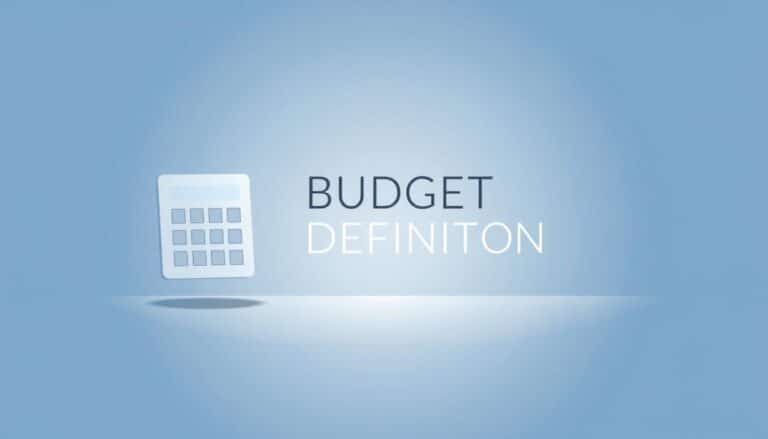Knowing your credit score is key today. It’s a three-digit number that shows how good you are with money. It helps decide if you can get loans and credit cards.
A high credit score can lead to great financial chances. You might get lower interest rates and higher credit limits. But, a low score can make it hard to get loans, credit cards, or even rent an apartment.
Key Takeaways
- Your credit score is a measure of your creditworthiness.
- A good credit score can lead to better financial opportunities.
- Credit scores play a significant role in determining loan and credit card approvals.
- Maintaining good credit habits is essential for a healthy financial profile.
- Understanding your credit score is the first step towards improving it.
What Is a Credit Score?
Related content:
You will stay on the same website.
A credit score is a three-digit number that shows how well you manage money. It helps lenders see if you can pay back debts on time. This score is key to your financial health.
It’s based on your credit reports. These reports have info on your loans, credit card debt, and how you’ve paid bills. Knowing about credit scores is important for handling your money well.
Definition of a Credit Score
A credit score is a number from 300 to 850 that shows how good you are with money. FICO scores are the most common. They come from Equifax, Experian, and TransUnion.
Many things affect your score. These include how you’ve paid bills, how much credit you use, and how long you’ve had credit. A higher score means you’re seen as a safer bet by lenders.
Importance in Personal Finance
Credit scores are very important for getting loans and credit cards. A good score can get you better deals. This means lower interest rates and higher credit limits.
| Credit Score Range | Creditworthiness | Loan Terms |
|---|---|---|
| 750-850 | Excellent | Best interest rates and terms |
| 700-749 | Good | Favorable interest rates and terms |
| 650-699 | Fair | Moderate interest rates and terms |
| Below 650 | Poor | Higher interest rates and less favorable terms |
To keep a good credit score, you need to be responsible. Pay bills on time, use credit wisely, and check your reports for mistakes.
How Credit Scores Are Calculated
Credit scores are not random numbers. They are based on your credit history. Lenders use them to decide if they should lend to you.
Factors Influencing Credit Scores
Many things affect your credit score. These include how you pay bills, how much credit you use, how long you’ve had credit, the types of credit you have, and new credit checks. Payment history is key, showing if you pay on time.
How much credit you use is also important. It’s best to keep this ratio low. High usage can hurt your score.
“A good credit score is not just about paying bills on time; it’s also about managing your credit wisely.”
Understanding Credit Reports
A credit report details your credit history. It includes accounts, payments, and credit checks. Credit bureaus use it to figure out your score.
Knowing what’s in your credit report is crucial. It helps you spot mistakes or areas to work on, like high credit use or late payments.
Checking your credit report often is smart. It keeps your score healthy by making sure all info is right and current.
Types of Credit Scores
There are two main types of credit scores: FICO and VantageScore. Knowing about these is key for managing your money well.
FICO Score Overview
The FICO score is made by Fair Isaac Corporation. It goes from 300 to 850. A higher score means you have good credit.
- Key Factors: Payment history, credit use, how long you’ve had credit, credit mix, and new credit checks.
- Usage: Most lenders use it for loans and credit cards.
FICO scores show how reliable you are with money. Lenders look at these scores to decide if they should lend to you.
VantageScore Explained
VantageScore is from Equifax, Experian, and TransUnion. It also goes from 300 to 850.
- Innovative Approach: It might score people with little credit history better.
- Consistency: It tries to score people more evenly.
Even though both FICO and VantageScore measure credit, they work differently. Lenders use them in different ways.
Knowing the differences between FICO and VantageScore helps you understand credit better. It helps you make smart money choices.
Why Credit Scores Matter
Credit scores are very important, mainly for loan approvals and interest rates. Lenders look at credit scores a lot when they decide if they should lend to someone.
Impact on Loan Approval
A high credit score makes it more likely you’ll get a loan. Lenders think people with good scores are less risky. So, they’re more likely to say yes to your loan.
For example, if your credit score is over 750, you’re seen as having a good history. This makes it easier to get loans.
Influence on Interest Rates
Credit scores also affect the interest rates you get. People with better scores usually get lower rates. This is because lenders think they’re less likely to not pay back the loan.
The table below shows how interest rates can change with your credit score.
| Credit Score Range | Interest Rate |
|---|---|
| 750-850 | 3.5% |
| 700-749 | 4.0% |
| 650-699 | 4.5% |
| 600-649 | 5.0% |
A Federal Reserve report says lenders use credit scores to guess if you’ll pay back a loan. This shows how important credit scores are in lending.
“Credit scores are a key factor in determining the interest rate a borrower will qualify for.”
Keeping a good credit score is key for better loan terms. This means lower interest rates and a higher chance of getting approved.
How Credit Scores Affect Insurance Premiums
Insurance companies often look at credit scores to figure out the risk of a potential client. This affects premiums. But, many people don’t really get how this works.
They use credit scores because they think people with better scores are less likely to make claims. So, knowing how credit scores play a part in insurance is key for those wanting to save money.
Role of Credit in Insurance
Credit scores help insurance companies guess if you’ll make a claim. Research shows there’s a link between credit scores and claim rates. So, insurance companies adjust your premiums based on this.
How exactly credit scores affect premiums can differ by company. But, the main idea is that those with better scores pay less because they’re seen as less risky.
Examples of Insurance Companies Using Credit
Big names like Geico, State Farm, and Progressive use credit scores in their risk checks. They look at your credit score when figuring out your insurance rates.
| Insurance Company | Use of Credit Score |
|---|---|
| Geico | Uses credit score to determine premiums for auto insurance |
| State Farm | Considers credit score in assessing risk for auto and home insurance |
| Progressive | Uses credit score as one factor in determining insurance rates |
It’s important to know that credit scores are just one thing that affects your insurance rates. But, they can really make a difference. Keeping a good credit score can help lower your insurance costs.
Common Credit Score Ranges
Understanding your credit score range is key to smart financial choices. Credit scores show if you’re likely to pay back debts on time. Lenders use these scores to decide if they should lend to you.
Understanding Good, Fair, and Poor Scores
Credit scores fall into groups like excellent, good, fair, and poor. The most common range is 300 to 850. Scores above 700 are seen as good or excellent, showing low risk for lenders.
A good credit score is 700-749, meaning you’re a reliable borrower. Scores from 650-699 are fair, showing some risk but still qualifying for credit at higher rates.
What Different Ranges Mean for Borrowers
Different credit score ranges affect borrowers in big ways. For example, those with excellent credit scores (750 and above) get the best loan and credit card deals.
But, those with poor credit scores (below 600) might struggle to get credit. Or, they might get credit at very high interest rates, making borrowing costly.
Knowing these ranges helps you understand how they affect lending. This knowledge can lead to improving your credit score. It might save you money on interest and help you get better financial products.
- Excellent credit: 750-850
- Good credit: 700-749
- Fair credit: 650-699
- Poor credit: Below 650
By knowing your credit score range, you can make better financial decisions. You can take steps to improve your creditworthiness.
Tips for Improving Credit Scores
Keeping a good credit score needs financial discipline and smart credit handling. Knowing what affects your score and using good strategies can boost your credit health over time.
Best Practices for Managing Credit
Good credit management includes several key steps. First, always pay on time. Payment history is a big part of your credit score. Setting up payment reminders or automating payments can help you stay on track.
Another important thing is to keep your credit card use low. This means not using too much of your available credit. Try to use less than 30% of your credit limit to show you’re responsible with credit.
- Check your credit report often to spot errors or negative marks.
- Keep old accounts open to use your long credit history to your advantage.
- Don’t apply for too much new credit at once.
Avoiding Common Mistakes
Missing payments is a big mistake that can hurt your score. Being consistent with payments is crucial to avoid this problem.
Maxing out credit cards is another mistake. It raises your credit utilization ratio and shows lenders you might be spending too much. Keep your credit card balances low to stay in good financial shape.
Also, don’t close old accounts. This can hurt your credit history length and ratio. Keeping a long credit history is good for your score.
How to Check Your Credit Score
Learning how to check your credit score is key to smart money choices. Keeping an eye on your score helps you know where you stand financially. It also shows you where you can get better.
Free Resources for Credit Scores
There are many free ways to see your credit score. Sites like Credit Karma and Credit Sesame give you free scores and detailed reports. Also, many credit card companies let you check your score for free online or through their apps.
Make sure to check your score from Equifax, Experian, and TransUnion. These scores might be different. You can get a free report from each of them once a year at AnnualCreditReport.com.
What to Look for in a Credit Report
When you look at your credit report, watch for mistakes. Look for:
- Incorrect personal information
- Accounts that don’t belong to you
- Late payments that were made on time
- Credit inquiries you didn’t authorize
Knowing what’s in your credit report helps you see how to boost your score.
By checking your score and report often, you can keep your credit in good shape. This helps you make smart choices about your money.
The Impact of Hard and Soft Inquiries
Knowing the difference between hard and soft inquiries is key for keeping your credit in good shape. When you apply for credit, like a card or loan, lenders check your credit report. This is called a credit inquiry.
Difference Between Hard and Soft Inquiries
Hard inquiries happen when lenders check your credit for loan or credit applications. These can lower your credit score because they show you’re looking for new credit. On the other hand, soft inquiries occur when you or a company check your credit for non-lending reasons, like background checks. These don’t affect your score.
It’s important to know not all inquiries are the same. Hard inquiries can lower your score by a few points but the effect is usually short-lived. The more hard inquiries you have, the bigger the impact, as it may show you’re taking on too much debt.
How Inquiries Affect Credit Scores
The effect of inquiries on your score depends on your credit history and score. For those with a long credit history and good score, a single hard inquiry has little effect. But for those with a shorter history or lower score, the impact is greater.
To keep your score from dropping, try not to apply for too much credit at once. Also, checking your own credit report is a soft inquiry and won’t hurt your score. So, you can check your credit often without worrying about it hurting your score.
Understanding the difference between hard and soft inquiries helps you manage your credit better. This way, you can keep your credit score as healthy as possible.
Disputing Errors on Your Credit Report
A credit report error can have big consequences. It’s key to dispute these errors to keep your credit score healthy. A good credit score helps you get loans and credit cards with better interest rates.
Identifying Errors
The first step is to find errors. Look over your credit report for mistakes like wrong personal info, accounts that aren’t yours, or wrong credit limits.
Common errors to look out for include:
- Incorrect personal details
- Accounts not belonging to you
- Incorrect credit limits or payment history
- Duplicate accounts
Steps to Dispute an Error
After finding an error, you should dispute it quickly. Here’s what to do:
- Obtain a copy of your credit report from the major credit reporting agencies.
- Highlight or mark the error on the report.
- Prepare a detailed dispute letter explaining the error and why it’s wrong.
- Send the dispute letter to the credit reporting agency, with any supporting documents.
- Follow up to make sure the dispute is handled and the error is fixed.
Disputing errors on your credit report is a smart move for your finances. Knowing how to spot and dispute errors helps keep your credit score strong. This ensures your financial records are correct.
Understanding Credit Utilization
Knowing how credit utilization works is key to managing your credit well. It’s the percentage of credit you’re using compared to what’s available. This is a big part of your credit score, showing lenders if you can handle debt.
What Is Credit Utilization?
Credit utilization is found by dividing the credit you’re using by the total available. For instance, if you use $300 of a $1,000 credit card limit, your ratio is 30%. A lower ratio is better for your credit score.
It can apply to each credit card or your whole credit profile. High utilization is seen as risky, suggesting you might be spending too much.
How to Calculate It
To figure out your credit utilization, you need your total credit limit and how much you’re using. You can find this on your credit card statements or online.
Here’s how to do it step by step:
- List all your credit cards and their limits.
- Add up the total credit limit of all cards.
- Find the total amount you owe by adding up your credit card balances.
- Divide the total amount owed by the total limit and multiply by 100 to get your ratio.
| Credit Card | Credit Limit | Balance |
|---|---|---|
| Card A | $1,000 | $300 |
| Card B | $2,000 | $500 |
| Total | $3,000 | $800 |
Using the table, your ratio would be (800 / 3000) * 100 = 26.67%. Keeping this under 30% is good for your credit score.
Building Credit for Beginners
Starting from scratch with credit can feel overwhelming. But, with the right steps, it’s doable. A solid credit base is key for getting loans, credit cards, and even apartments.
Steps to Establish Credit History
To begin building credit, follow these steps:
- Apply for a secured credit card or become an authorized user on someone else’s credit card.
- Make timely payments to show you’re responsible with credit.
- Keep your credit utilization low to prove you can handle your credit well.
- Check your credit report often to make sure it’s correct and current.
Secured credit cards are great for beginners. They need a deposit, which is your credit limit. This makes lenders feel safer.
Recommended Credit Products for New Borrowers
New borrowers should consider these credit products:
- Secured Credit Cards: Perfect for starting, these cards need a deposit and are easier to get.
- Credit Builder Loans: Made to help build credit, these loans require regular payments over time.
- Store Credit Cards: Many retailers offer these cards, which are easier to get approved for. They can help build credit if used wisely.
When picking a credit product, read the fine print. Look for low fees and fair interest rates.

By following these steps and choosing the right credit products, beginners can build a strong credit history. This foundation will open up better financial opportunities and more favorable loan terms in the future.
The Future of Credit Scoring
Credit scoring is changing fast, thanks to new tech and better data analysis. Credit scoring models are getting smarter. They now use more data to judge how reliable someone is with money.
Emerging Trends in Credit Scoring
New trends in credit scoring include looking at things like rent payments and social media. This could help people with little credit history. It’s making credit scoring more accurate and fair.
Keeping up with these changes is key for both consumers and lenders. It helps everyone stay on top of their credit game. Knowing about these trends is vital for the future of credit.



